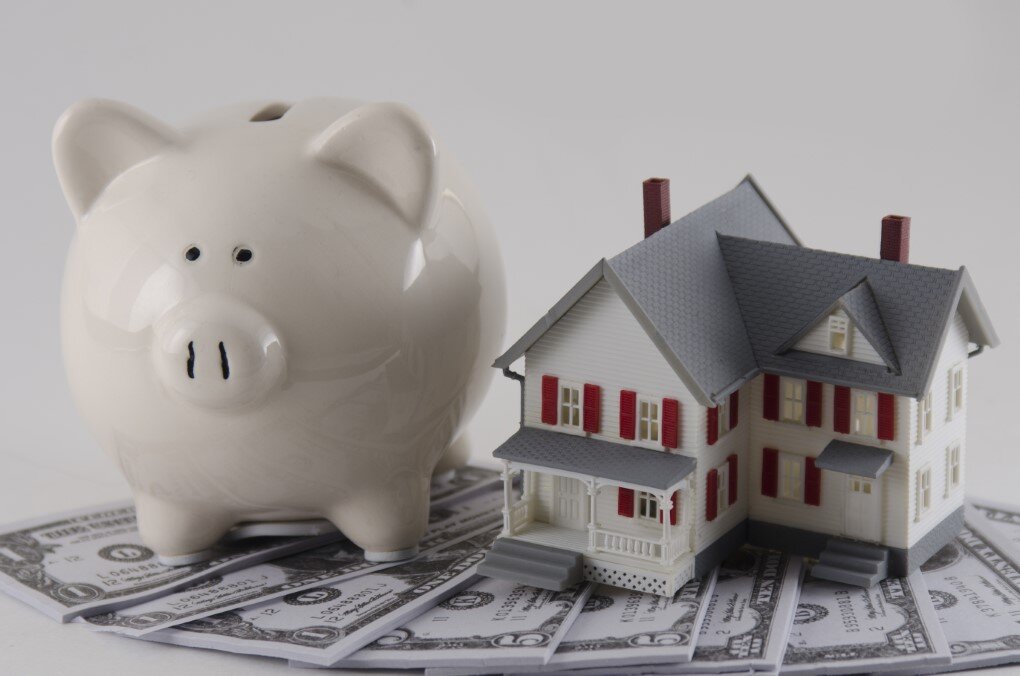
Perhaps you’re considering selling your home, but you haven’t paid off the mortgage yet and are worried that will prevent you from selling.
This is a common fear. After all, over 60% of the homes in the United States have mortgages on them. Are all these homes unable to sell until their loan balances are paid off?
The short answer is no. Having a mortgage does not prevent you from selling a house.
However, selling a house with a mortgage does affect the selling process and how much you will receive from the sale. Understanding how this process works is important to make the best decision when selling your home.
This article covers the nuances of selling a home with a mortgage as well as unique scenarios, such as if you owe more than the house is worth.
Keep reading to understand the process!
Can You Sell a Home That Still Has a Mortgage?
Absolutely. People sell homes with mortgages every day. Since most homes in the nation have an outstanding mortgage balance, most real estate transactions involve paying off the existing mortgage.
When you sell a house with a mortgage, part of the proceeds from the sale go toward paying off the loan balance, and then you keep the rest. As you can imagine, the amount of money left on your loan significantly affects how much money you make when selling your home.
Steps to Sell a House With a Mortgage
Selling a house with a mortgage loan is very similar to selling a home that is owned free and clear. The only difference is that the mortgage debt must be accounted for in the sale.
Let’s look at the sale process for a house with a mortgage.

Determine Loan Balance
Before you move forward with selling your house, it is important to determine your mortgage balance so you know how much money you can expect to walk away with. Since the mortgage lender is the first party to be paid from the funds from the sale, the mortgage payoff amount plays a massive role in your bottom line.
The amount of principal left on your loan will be influenced by the down payment you made when you purchased the house, the interest rate, the amortization length, and how long you’ve lived there.
For most situations, looking at the loan balance on your most recent statement will be close enough at this point. However, this number likely won’t be perfect because there could be fees or a shortage in the escrow account that isn’t accounted for. You can request a payoff statement from your mortgage lender if you want the most accurate number.
Decide If You Will Make Any Repairs
If you’ve lived in the house for much time at all, it’s likely seen some wear and tear. And if you’ve been there for a while without making any updates, it might require some renovations to fetch top dollar on the market.
You will need to decide if you want to spend the money and effort to spruce up your home or sell it like it is. There are several factors to consider, such as the house’s current condition, market status, and the price point you intend to sell at. You could lose money selling as is, but it could be much less than you think when you consider the actual cost of repairs and include the money, time, and energy spent.
Market to Find a Buyer
Once you’ve figured out your mortgage payoff and gotten your home in the condition you want it to sell, it’s time to get it sold!
You can sell your house in a few different ways, and each option has slight nuances. Let’s look at the most common ways to sell a home.
Option #1: List with a Real Estate Agent
Listing your house on the MLS (Multiple Listing Service) with a real estate agent is the most common way to sell a house. A real estate agent will advise you on current market conditions, the value of your home, and any updates that will help it sell for top dollar.
The help of an agent does come at a cost, however. In most markets, agent commissions are 6% of the sales price, with 3% going to the listing agent and 3% to the buyer’s agent. Counterintuitively, the seller pays for both sides! This will significantly increase your closing costs and reduce your bottom line.
Since agent commissions can take such a large chunk out of the sale proceeds in a real estate transaction, many sellers consider cutting out agents and selling their houses alone. However, a good agent often justifies their fee by fetching a higher price than a homeowner can get by themselves.
Option #2: List Your Home FSBO
If you think you have what it takes to sell a house, you can list it FSBO (For Sale By Owner). The process is very similar to listing it with a real estate agent, except you will be responsible for everything an agent typically does.
This includes taking pictures, setting the list price, writing a captivating description, publishing the listing, coordinating showings, fielding offers, filling out paperwork, managing the due diligence period and any hiccups along the way, and communicating with the title company through closing. As you can see, agents do quite a lot!
If you decide to sell your house without an agent, getting as much exposure as possible is crucial. This is one of the perks of working with an agent, because the MLS is where most buyers are looking. Fortunately, some services will publish your listing on the MLS for a small fee.
Remember that even though you list your home yourself, the buyers might be working with an agent, and that agent’s commission will come out of your proceeds.
Option 3: Sell to a Professional Home Buyer
Perhaps you don’t want to go through the hassle of listing your home, accommodating showings, and making repairs. An easy way to sell your house fast is by working with a professional house buyer in your area.
Instead of listing your house and hoping buyers come along, a house buyer will look at your house and make an offer with no expectation for you to make any repairs. House buyers purchase homes for the sole purpose of renovating them to sell or rent, so they always buy as is.
Another benefit of selling your house to a professional buyer is that they don’t charge any fees and will typically pay your closing costs. Depending on the price point of your home, that perk alone could be worth tens of thousands of dollars.
Since investors make free, no-obligation offers, it wouldn’t hurt to get an offer if you’re considering selling your house as is. If you can sell this way instead of going through an agent, you could save yourself 6% in commissions.
How to Sell a House With an Underwater Mortgage

So far, we’ve discussed selling a house with a mortgage assuming there is equity, meaning the home is worth more than the loan balance.
But what about the case of negative equity? An underwater mortgage occurs when a homeowner’s loan balance exceeds what their house is worth. It’s not as simple to sell the house in this case because the proceeds from the sale will not be enough to pay off the mortgage lender.
So can you sell a house if you owe more than it’s worth? It is possible but will be more complicated than a traditional sale with plenty of equity.
Here are your options for selling a house with a mortgage with little, no, or negative equity.
Short Sale
A short sale means selling a house for less than the mortgage balance, where the lender forgives the difference. It is called a short sale because the house is being sold “short” of the mortgage payoff amount.
If it is possible to do a short sale, then why doesn’t every homeowner upside down on their loan do one? First, it is a very complicated process. Although it is called a short sale, the name has nothing to do with how long it takes. It can take several months with countless hoops to jump through.
Many lenders won’t even consider a short sale unless the borrower is behind on payments. And please, don’t go and miss a payment intentionally to get a short sale approved. Many people have tried this, and it typically does more harm than good.
Pay Out of Pocket for the Shortage
The most obvious option to sell a house with an underwater mortgage is to cover the shortage by bringing money to the closing table. But that can be painful to pay to sell a home. Nevertheless, this can be the best option for people with the funds to do so.
One thing to keep in mind is that you’ll likely have to bring more money to the closing table than you think. Just because the sales price is $10,000 less than the mortgage payoff amount doesn’t mean that’s how much you will have to pay. If you use a real estate agent, you must also pay their commission out-of-pocket. At a minimum, you will have to cover closing costs, which will be at least $2,000 in most cases.
Wait it Out
If you don’t have the money to cover the equity shortage and don’t want to go through a short sale, it might be best to stay in the home until your upside-down loan turns right-side-up.
This can happen for two reasons: Your mortgage principal being paid down over time, and your home appreciating in value. In reality, it will likely be a combination of the two that gives you enough equity to sell.
Principal paydown is very slow, especially if you are in the early stage of your loan. It can take years to make a significant dent in the balance. However, this effect on your equity is predictable assuming you make the mortgage payments on schedule. Appreciation of your home’s value can happen much faster, but it is much less predictable and depends on market conditions.
Renovate Your Home to Increase Its Value

Instead of waiting on the market to raise the value of your home, you might be able to force appreciation by renovating it. If homes that have sold in your area have nicer finishes than yours, you likely have room to raise the value and create enough equity to sell.
The key is to make changes with the largest impact and avoid renovations that don’t raise your home’s value. One way to determine which updates to make is by looking at homes that have sold for the highest prices in your area. If you model your updates after them, you can likely sell at that price point.
One important consideration when thinking about renovating your home to gain equity is whether you will get more than one-to-one appreciation for every dollar you spend. You don’t want to spend $20,000 on a renovation and only increase your home’s value by $15,000.
The best way to avoid this is by consulting with an agent to understand what your home can sell for now and what it would sell for if you made appropriate renovations. Then, get quotes from contractors on the project. If the appreciation you will see is significantly larger than the price of making the updates, it likely makes sense to go for it.
Sell to an Investor that Understands Creative Financing
Many people think that real estate investors only buy houses at deep discounts so they can renovate them and sell them for a profit. However, this isn’t the only thing real estate investors do.
Many real estate investors use creative financing, which is less focused on price and more on terms. These investors have a more long-term approach, so they don’t care as much about price as cash buyers.
One way you can sell your house with an underwater mortgage is by selling it to an investor who understands creative financing. One way they can buy it is called buying it subject to the existing financing. This means they will buy it, leave the existing mortgage in place, and begin making payments on it. Since there isn’t enough equity to sell the house for a profit right now, they will likely turn it into a long-term investment property and pay down the loan over time.
This can be a great way to sell an upside-down house. In fact, it is the best option for many people because they don’t have to bring money to the closing table, and it doesn’t damage their credit like a short sale.
What Happens to Escrow Balance When You Sell Your House?

Typical mortgage payments consist of principal, interest, property taxes, and homeowner’s insurance (and sometimes private mortgage insurance if you didn’t make a high enough down payment). Tax and insurance payments typically go into an escrow account that pays those bills once a year.
Since the escrow account inflates over the year and deflates when it’s time to pay for taxes or insurance, selling during the middle of the year can cause some confusion about where the escrow money goes.
Insurance money is typically more straightforward because premiums usually don’t change too much year-to-year. Taxes, on the other hand, can vary significantly. That’s why your mortgage payment changes yearly so the mortgage company can keep up with the tax bill.
When a home is sold, most title companies prorate the taxes for the year. Let’s assume you sold your home halfway through the tax year. This means you are responsible for the first half, and the buyer is responsible for the second half. The tax amounts are added to the corresponding parties’ closing costs. The buyer’s taxes are added to their “cash to close” number, and your taxes are deducted from your proceeds.
You’re probably thinking, “But I already paid the taxes up until now.” And you would be right. The escrow payments you have made are still sitting in your escrow account. Once your file is closed out, the mortgage company will send you a check for the balance of the escrow account.
Final Thoughts on Selling a House with a Mortgage
Can you sell a house with a mortgage? Absolutely.
Does it add some complications? Maybe a little, but nothing crazy. Since most real estate transactions involve a home with an outstanding loan balance, you won’t be blazing a trail millions of other homeowners haven’t trod.
If you plan on selling a house with a mortgage anytime soon, we hope the information here has been enlightening for you. The key is to determine your remaining loan balance and then think about what your goals are when selling. That could be getting the house in tip-top shape to sell for top dollar, or selling as is to make it as easy as possible.
If you need to sell your house in North Alabama, we’d love to talk to you about it. We buy houses as is and make the entire process completely smooth. Regardless of your goals, we’d be happy to give you advice and point you in the right direction.
